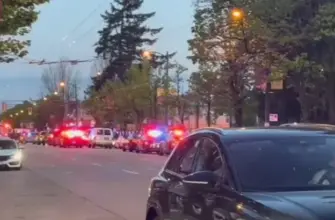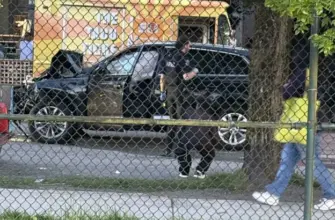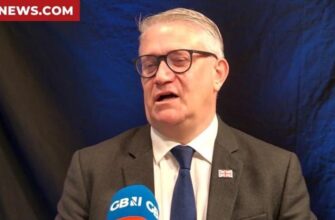The American Civil Liberties Union has taken a significant step in challenging the Trump administration’s planned deportations, filing an urgent appeal with the U.S. Supreme Court. The legal action seeks an immediate injunction preventing the removal of Venezuelan nationals currently detained in Texas, slated for return to South America under the seldom-utilized Alien Enemies Act.
This case hinges on prior Supreme Court rulings that have placed limitations on the government’s application of this 1798 legislation. These rulings establish a fundamental right to a hearing before deportation for individuals targeted by the Act, highlighting concerns about potential abuses.
Just hours preceding the Supreme Court filing on Friday, the ACLU had simultaneously petitioned two federal judges for protective orders against the impending deportations. Judge James E. Boasberg was assigned to preside over the request, scheduling a hearing for that evening.
Judge Boasberg’s involvement stems from his earlier ruling regarding the Alien Enemies Act. He previously determined there was sufficient evidence suggesting the Trump administration had violated his court order by proceeding with deportations. This led to a Supreme Court decision asserting jurisdictional control – that only judges located in the areas where individuals are being deported possess authority over their cases.
Currently, judicial intervention has been successful in pausing deportations in several states: Colorado, New York, and South Texas. However, this protective measure does not extend to the Venezuelan nationals held at the Bluebonnet Detention Center in northern Texas – a center where the ACLU is focusing its efforts.
“We are fighting for the due process rights of these vulnerable individuals,”
stated an ACLU spokesperson regarding the situation. “The administration’s reliance on this antiquated Act, combined with potential misidentification and accusations against them as members of criminal gangs like ‘Tren de Aragua,’ raises serious concerns about fairness and legal safeguards.”
Adding another layer to the controversy, President Trump addressed the case involving Kilmar Abrego Garcia, a Salvadoran national mistakenly deported from Maryland. During this public commentary, he criticized Judge Boasberg’s actions and emphasized his commitment to removing individuals he deems “bad people” from the country.
Trump shared photographic evidence of Garcia’s knuckles bearing tattoos that allegedly represent MS-13 gang affiliation, accompanied by a statement: “They said he is not a member of MS-13, even though he’s got MS-13 tattooed onto his knuckles, and two Highly Respected Courts found that he was a member of MS-13, beat up his wife, etc. I was elected to take bad people out of the United States, among other things. I must be allowed to do my job. MAKE AMERICA GREAT AGAIN!”
The legal battle continues with significant implications for immigration policy and judicial oversight. The Associated Press provided reporting on this developing story.



